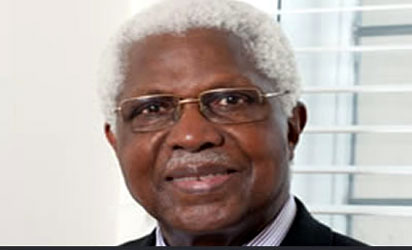By Ochereome Nnanna
I HAVE always said there is no single version of Nigeria’s history. Most of us might agree on the general outlines of our history up to five years after independence. But from 1st January 1966, those of us from the former Eastern Region, especially the Igbo constituents of the defunct Republic of Biafra, developed a dramatically different trajectory of our history’s appreciation. From that point, I do not expect to be on the same page with my fellow countryman from the North or West.
For 30 months, from 30th May 1967, I ceased to be a Nigerian. I became a Biafran. Those who were still Nigerians became my enemies as I was theirs. We fought to the death from the opposite sides of a boldly drawn battle line, but when I lost the struggle I had to give in to their well-honed and highly persuasive propaganda that they were only fighting to bring me back to the Nigerian family to which I rightly belong.

But when I came back, for the past 47 years, I have lived with the fact that there is no such thing as the “Nigerian family”. Rather, Nigeria has become the colonial outpost of those who felt they had the right to the victor’s booty after “winning” a war from which there were not supposed to be a victor or vanquished. My rights as a full member was circumscribed, at least in the mind of my former enemies, and any effort I’ve made to reclaim my place of pride is emasculated by the same coalition I fought as a Biafran.
This is the story of the Igbo man in Nigeria, but no one lived it out in graphic details more than Dr. Alex Ifeanyichukwu Ekwueme, GCON, and Vice President of Nigeria between 1979 and 1983, who joined the pantheon of immortality on Sunday, 19th November 2017 in London at 85.
In 2015 when the presidential candidates and running mates of the two major political parties – the People’s Democratic Party, PDP, and the All Progressives Congress, APC, did not feature any Igbo person, some Igbo youth were puzzled that no Igbo has ruled Nigeria like others. The answer can be found in the political history and experiences of Dr. Ekwueme.
At the end of the civil war, the Head of State, General Yakubu Gowon, paying heed to his British advisers that he must also try to win the peace after winning the war, declared that there was “No Victor, No Vanquished”. He even enunciated the three “R’s” – Reconstruction, Rehabilitation and Reconciliation. They ended up mere words, no action. There were people who were genuinely committed to letting bygones be bygones and reintegrate the Igbo in the Nigerian mainstream soonest. The ordinary Nigerian did not have any problem at all having Igbo people come back to the family.
The former Biafrans gradually returned to where they had lived before all over the country. Some of them even had their properties returned to them with accumulated rents in Lagos and the North. However, contrary to what was happening in these far away areas, the Federal Military Government constituted the Major DAB Mark Abandoned Property Implementation Committee – in Rivers State alone! This was to intensify the mutual animosity between Igbo and their Eastern Minorities, remove the Igbo as stakeholders in the oil city of Port Harcourt and enable the North and their Western lackeys have untrammelled control of the area and its oil resources.
As a major investor in real estate in Port Harcourt, Ekwueme, in his book, From State House to Kirikiri (Nwamife Publishers, Enugu, 2002, pp. 191 to 194) recorded how General Olusegun Obasanjo, two days to the end of his tenure as military Head of State on 28th September 1979, promulgated Decree 90. The Decree “legalised the sales of abandoned properties carried out by (David Mark’s) Abandoned Properties Implementation Committee, indemnified the Committee members and protected them from any suit or proceedings in respect of their conduct as such Committee members and ousted the jurisdiction of the court from enquiring into the constitutionality or otherwise of the sales”.
The ironic thing about the whole sordid affair was that while the outgoing military regime was biting down on Igbo property in Port Harcourt (which is an Igbo city but which the North and West sought to isolate from the South East in order to control the oil resources of the Niger Delta unchallenged) the civilian class, the mainstream of the Nigerian populace, opened its arms to welcome the Igbo people back into the centre of things.
Earlier, the National Party of Nigeria, NPN, had made up its mind to embrace the Igbo nation. It reserved its Vice Presidential slot to the Igbo, which then had only two of Nigeria’s then 19 states – Imo and Anambra. When the NPN elected Alhaji Shehu Shagari as its presidential candidate, the vice presidency was a straight fight between Dr. Ekwueme, Dr. J.O.J. Okezie and Dr. Kingsley Ozumba Mbadiwe. Ekwueme, the least flowery of the trio, was picked, to the shock of many political pundits. It was feared that Okezie and Mbadiwe, as colourful politicians, could “outshine” Shagari who was a teacher and an epitome of humility.
Two opposite currents were at play within the Nigerian ruling elite. Barely eight years after the civil war, the civilian political class with a strong Northern face, offered the Igbo their right hand of fellowship to join in inheriting power from the outgoing military made up mainly of the combatants of the Federal Army during the civil war. But on the other side, the outgoing military led by Obasanjo who was a lackey of the hawkish North, signed a Decree to consolidate the seizure of Igbo property in Rivers State.
In the second part of this write-up you will see how the Army’s long shadow continued to stalk Ekwueme, ensuring he never emerged President of Nigeria.



